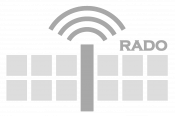Societies have historically underinvested in research, either because it is a long-term process and the results were not easily visible, or because of the complexity of this enterprise. This, along with other difficulties, weighed on researchers who often lacked the will or power to become more engaged in public life, which further affected trust in science and research. Breaking the vicious circle was seen as a slow process and was intended to be based on a genuine partnership between researchers, as promoters of new findings about the world’s true nature, society as a whole, with its most pressing but also subtle needs, and communication facilitators as a way to surface unexpressed realities. The partnership, aiming to ReCoNnect these different views, was expected to be effective in educating present citizens and in shaping teaching approaches for the members of future society. The consortium was made up of six research institutes, four universities, one public body, and two civil community associations experienced in promoting science and STEM education, which had supported the development of one of the largest educational networks in the country, also connected to EU programmes. Together, the partners proposed a highly innovative concept for the European Researchers’ Night, rooted in extensive experience with the programme and strongly supported by the institutions involved. They aimed to implement it as a nationwide campaign comprising 21 events in representative urban areas. Three UNESCO/aspiring geoparks were expected to organize events in rural areas, while others were encouraged to participate remotely. By focusing the conversation, the project aimed to tackle a topic of great interest for European Union countries: the European Green Deal. It also aimed to map current perceptions and expectations of the population on this programme through a large number of public encounters, and to better communicate the endeavors and successes of Romanian researchers in contributing to the EU’s very ambitious goals.
The project ran between 2021 and 2022.

